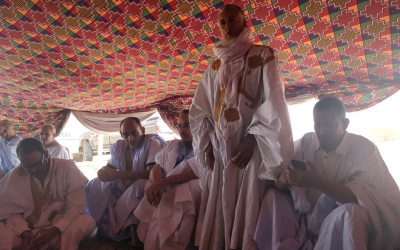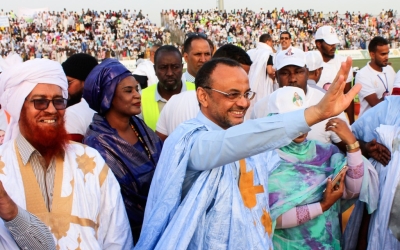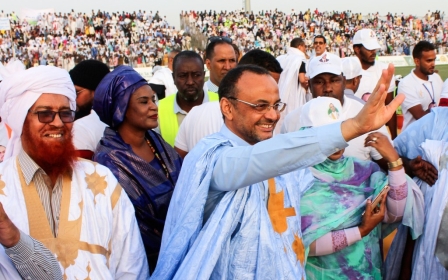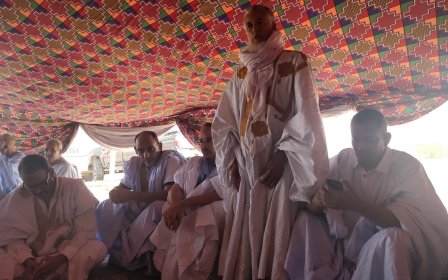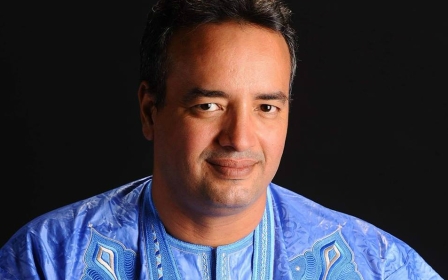Meet Mauritania's presidential candidates
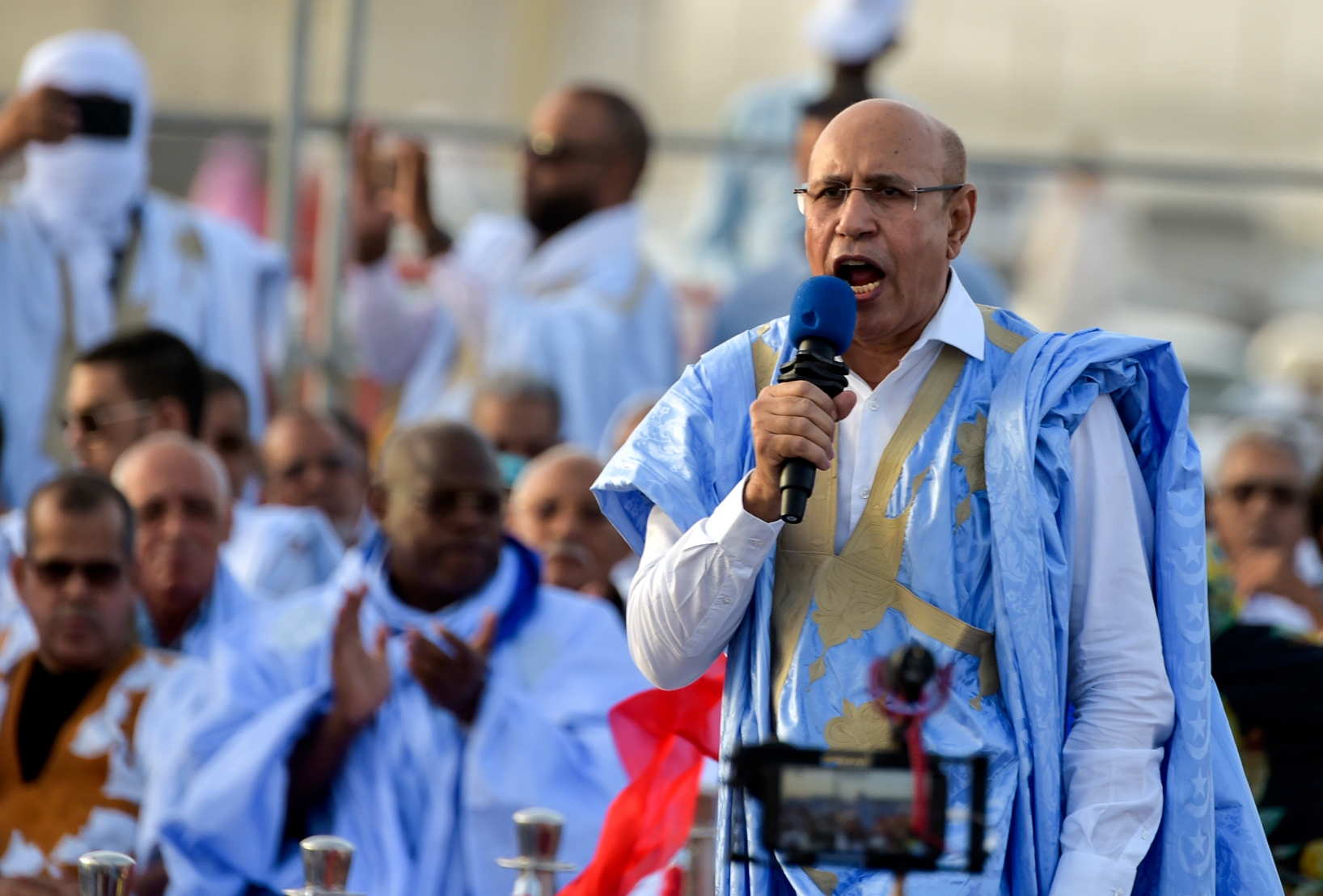
Mauritanians will vote to elect a new president on Saturday as President Mohamed Ould Abdel Aziz steps down after serving two five-year terms in office.
Military rulers have long played an essential role in Mauritanian politics, including Abdel Aziz, who came to power in a military coup in 2008, making the election potentially the first peaceful transition of power since the country won independence from France in 1960.
Six candidates will run in Saturday’s election; they will compete in a second round on 6 July if none of them receive more than 50 percent of the vote.
In recent weeks, candidates have toured the vast Saharan country, courting tribal leaders regarded as power brokers who can mobilise entire communities behind a candidate.
Meanwhile, in the capital Nouakchott, cars honked and singers warbled long into the night in mock bedouin tents set up to capture votes in a city where one-third of the country’s 4.5 million people reside.
The burning issues for voters include political reform, economic development and combating corruption. National unity, in a country that has deep ethnic and racial divides, is also an important focus.
Mohamed Ould Ghazouani
The front-runner is former defence Mohamed Ould Ghazouani, who also served as army chief for a decade under Abdel Aziz.
The candidate for the ruling Union for the Republic (UPR) has the firm backing of the president, with whom he served in Mauritania’s armed forces for more than two decades.
Drawn from the Arab-Berber tribes that have dominated the country since independence, his platform includes economic, political and social reform.
Many view him as the “continuity” candidate, able to maintain economic growth, which stood at six percent this year according to the International Monetary Fund, continue to have strong relations with the West, and keep militants at bay.
But Alex Thurston, Assistant Professor of African studies at Georgetown University, said not everyone has benefited from the spoils of economic growth.
"There are definitely people who think the economy is deeply unequal and deeply rigged. You do see new construction. But you also see serious poverty, and there is tremendous rural poverty too,” he said.
Ghazouani's close ties with Abdel Aziz could also backfire, said Mohamed Ould Elhassen, president of the Nouakchott-based International Institute for Research and Strategic Studies.
"There is always the question of Ghazouani being the extension of the existing system. Voters are looking for change and a break with the past," he said.
Sidi Mohamed Ould Boubacar
Ghazouani’s closest competitor is Sidi Mohamed Ould Boubacar, who served two terms as prime minister and is a former ambassador to the United Nations.
His platform includes a reform of the overcrowded and understaffed public school system, where many poor families send their children to be educated.
Reducing poverty and boosting employment are also cornerstones of his manifesto, which includes stamping out government corruption.
His success will largely depend on how voters respond to Tawassul, Mauritania’s largest opposition party and an offshoot of the Muslim Brotherhood, which has been on the receiving end of a crackdown by President Abdel Aziz even though they have wide support, according to Thurston.
"They've won seats across the country before. They're not just a Nouakchott-based party. Their strategy is to have a multiracial appeal and they've done a lot to be inclusive," he said.
While the party’s inclusive policies have been able to attract young Mauritanians from across the ethnic divide, Tawassul was able to take only 14 out of 146 seats in September’s parliamentary elections, compared with 97 by the ruling UPR.
Biram Dah Abeid
Outlier in the election is Biram Dah Abeid, who was runner-up with nine percent of the vote in the 2014 elections.
A human rights activist with an international profile, Abeid was born to parents who were born into slavery, and he has vowed to abolish the practice, which still exists in a country that straddles Black and Arab Africa. Some two percent of its people still live as slaves, according to the 2018 Global Slavery Index.
He draws much of his support from black slave descendants known as Haratins, who face widespread poverty and discrimination, despite being the largest single ethnic group.
Universal human rights are also a strong feature of his campaign, as is a stronger separation between the government and the army, which has held onto power for a generation.
The three other candidates are:
-
Mohamed Ould Maouloud, a former professor of history at the University of Nouakchott whose main aim is to achieve unity among Mauritania’s ethnic groups and install measures to tackle poverty.
-
Kane Hamidou Baba, who received just over four percent of the vote in the 2009 general election. Coexistence between communities is at the forefront of his campaign, as is alleviating poverty.
-
Mohamed Lemine El-Mourteji El-Wavi, a political novice and senior official in the Mauritanian treasury, has placed educational reform at the heart of his campaign.
While elections in 2009 and 2014 were deemed acceptable by international observers, analysts and opposition figures have complained of state interference.
Elhassen of the International Institute for Research and Strategic Studies said he expects Ghazouani and Boubacar to make it to the final round if a free and fair election indeed takes place.
"These are my predictions, but elections are sometimes full of surprises."
Middle East Eye propose une couverture et une analyse indépendantes et incomparables du Moyen-Orient, de l’Afrique du Nord et d’autres régions du monde. Pour en savoir plus sur la reprise de ce contenu et les frais qui s’appliquent, veuillez remplir ce formulaire [en anglais]. Pour en savoir plus sur MEE, cliquez ici [en anglais].


